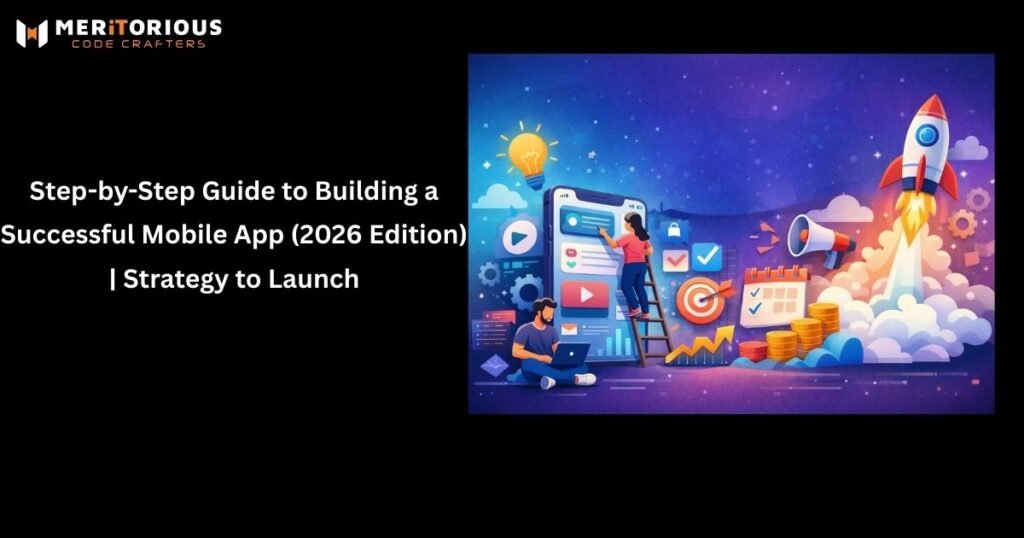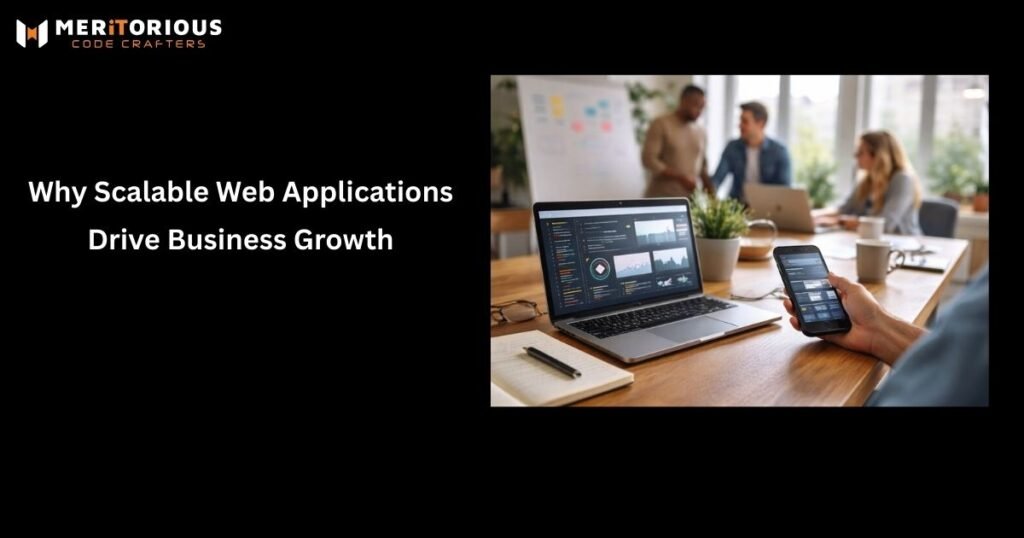While 5G technology offers significant benefits of 5G, organizations must also consider the negative impact of 5G on business operations, including increased cybersecurity risks from expanded IoT device networks, infrastructure costs for private 5G network implementations, implementation complexity involving emerging technologies integration, and potential operational disruptions during transition periods from traditional wireless technologies.
Cybersecurity challenges expand with 5G technology implementation as with the increase in connected IoT device networks, autonomous vehicles systems, and smart city integrations, the attack surface for cyber threats expands significantly. Ensuring the security of 5G technology networks and comprehensive IoT integration becomes paramount to protect sensitive business information and maintain customer trust throughout the digital transformation process utilizing edge computing security protocols.# How Will 5G Impact Business: The Complete Guide to 5G Business Transformation in 2025
The digital transformation landscape is experiencing an unprecedented shift as 5G is the fifth generation of wireless technologies that revolutionizes how businesses operate, compete, and deliver value to customers. This revolutionary 5G technology represents the pinnacle of emerging technologies, offering faster speeds and unprecedented capabilities that are times faster than 4G networks. Understanding how 5G will impact business operations across industries has become crucial for organizations seeking to maintain competitive advantages in an increasingly connected world. This comprehensive analysis explores the multifaceted 5G business impact across various sectors, operational frameworks, and technological implementations, examining the extensive benefits of 5G for modern enterprises.
As we advance through 2025, the global 5G services market size was estimated at USD 125.36 billion in 2024 and is projected to reach USD 2,208.25 billion by 2030, growing at a CAGR of 62.2% from 2025 to 2030. This explosive growth trajectory demonstrates the transformative potential of 5G technology and its inevitable integration into business ecosystems worldwide, particularly through internet of things IoT implementations and edge computing solutions that enable reduced latency and enhanced operational efficiency.
Understanding the Fundamental 5G Business Impact
The 5G business impact extends far beyond faster internet speeds, fundamentally reshaping operational paradigms, customer experiences, and business models through advanced IoT integration and autonomous vehicles connectivity. Organizations across all sectors are discovering that 5G and its impact on business operations creates opportunities for unprecedented innovation while simultaneously presenting unique challenges that require strategic planning and significant investment.
The transition from 4G to 5G technology represents a technological leap that enables ultra-low reduced latency communication, massive IoT device connectivity, and enhanced mobile devices broadband capabilities. These core improvements translate into tangible business benefits including improved productivity through remote work capabilities, enhanced customer experiences via augmented reality AR applications, and the enablement of emerging technologies such as smart city infrastructure, Internet of Things IoT ecosystems, and artificial intelligence applications.
Understanding how does 5G impact my business requires examining specific use cases relevant to your industry, operational requirements, and customer expectations. The technology’s impact varies significantly across different business models, with some organizations experiencing immediate operational improvements through enhanced download speed and video conferencing capabilities, while others require extensive infrastructure modifications including private 5G network implementations to realize the full benefits of 5G technology.
Comprehensive Analysis of 5G Network Impact on Business Operations
The 5G network impact on business operations manifests through several key performance improvements that directly affect organizational efficiency and competitive positioning. Enhanced network reliability, reduced latency that is times faster than 4G, and increased bandwidth capacity create opportunities for real-time decision-making, improved collaboration tools, and seamless integration of emerging technologies into existing workflows.
Businesses implementing 5G technology solutions experience significant improvements in remote work capabilities, edge computing performance, and mobile application functionality. The enhanced connectivity with superior download speed enables organizations to support distributed teams more effectively while maintaining high levels of productivity and operational continuity through advanced video conferencing and collaboration platforms.
The impact of 5G on business extends to supply chain management through comprehensive IoT integration, where real-time tracking via connected IoT device networks, automated inventory systems, and predictive analytics become more feasible and cost-effective. Organizations can implement sophisticated monitoring systems that provide unprecedented visibility into operational processes, enabling proactive problem-solving and optimization strategies supported by edge computing infrastructure.
Customer-facing operations benefit substantially from 5G technology implementation through improved service delivery, enhanced digital experiences via augmented reality AR applications, and innovative product offerings that leverage high-speed connectivity and faster speeds. Retail businesses, for example, can implement immersive augmented reality AR shopping experiences, while service providers can offer real-time support solutions through advanced mobile devices integration that were previously technically unfeasible.
Transforming Business IT Infrastructure Through 5G Integration
The impact of 5G on business IT infrastructure represents one of the most significant technological shifts organizations face in the modern digital landscape. Traditional network architectures must evolve to accommodate 5G technology capabilities while maintaining security, reliability, and cost-effectiveness across all operational areas through advanced wireless technologies integration.
With faster speeds that are times faster than 4G, 5G technology enables rapid data transfer and superior download speed, enhancing productivity and allowing organizations to implement data-intensive applications including autonomous vehicles fleet management, comprehensive IoT integration systems, and augmented reality AR training programs that were previously impractical. This infrastructure transformation requires careful planning, significant investment, and strategic implementation approaches that align with business objectives and operational requirements.
Edge computing integration becomes increasingly important as organizations seek to maximize the benefits of 5G while minimizing latency and bandwidth costs. By processing data closer to end-users through strategically positioned IoT device networks, businesses can improve application performance, reduce network congestion, and enhance overall system reliability while supporting smart city initiatives and autonomous vehicles operations.
Cloud infrastructure compatibility with 5G technology and private 5G network implementations enables organizations to implement hybrid and multi-cloud strategies more effectively, providing greater flexibility in resource allocation, disaster recovery, and scalability options. This integration supports business continuity planning while enabling innovative service delivery models through emerging technologies and advanced wireless technologies frameworks.
Security infrastructure must evolve to address the expanded attack surface that 5G technology and extensive IoT integration introduces. Organizations require comprehensive cybersecurity strategies that protect against emerging threats while enabling the connectivity and accessibility that 5G technology promises through secure private 5G network implementations and robust IoT device management protocols.
Detailed Examination of Impact of 5G on Small Businesses
The impact of 5G on small businesses presents unique opportunities and challenges that differ significantly from enterprise-level implementations. Small businesses often face resource constraints that make large-scale infrastructure investments challenging, yet they also possess the agility to implement innovative solutions including IoT device networks, augmented reality AR customer experiences, and remote work capabilities more quickly than larger organizations.
For small businesses, the benefits of 5G include access to enterprise-grade wireless technologies, faster speeds for improved productivity, and the ability to implement emerging technologies such as smart city integrations and Internet of Things IoT solutions that were previously cost-prohibitive. This means a more secure IT infrastructure through private 5G network options, reducing the risk of data breaches and ensuring the integrity of sensitive information. Additionally, the increased reliability of 5G technology with reduced latency minimizes downtime, ensuring continuous business operations.
Small businesses can leverage 5G technology to compete more effectively with larger organizations by implementing advanced customer service solutions through video conferencing platforms, sophisticated marketing campaigns utilizing augmented reality AR experiences, and operational efficiency improvements via IoT integration and edge computing solutions that were previously available only to enterprises with substantial technology budgets.
Cost considerations remain paramount for small business 5G technology adoption. While the technology offers significant benefits of 5G including faster speeds, reduced latency, and enhanced mobile devices capabilities, organizations must carefully evaluate implementation costs against expected returns, considering factors such as private 5G network hardware upgrades, IoT device investments, service plans, and training requirements.
The democratization of advanced wireless technologies through 5G technology creates opportunities for small businesses to access enterprise-grade capabilities including artificial intelligence, machine learning, IoT integration with multiple IoT device networks, edge computing solutions, and advanced analytics tools that can drive business growth and operational optimization through emerging technologies implementation.
Why Enterprises Need 5G
Enterprises need 5G technology to unlock transformative business capabilities including ultra-low latency of 1 millisecond for real-time applications, speeds up to 100 times faster than 4G for data-intensive operations, and the ability to connect up to 1 million devices per square kilometer for massive IoT deployments. 5G enables critical enterprise use cases such as Industry 4.0 smart manufacturing with predictive maintenance and automated quality control, enhanced remote workforce productivity through seamless cloud connectivity, real-time supply chain visibility and optimization, advanced healthcare applications including telemedicine and remote patient monitoring, autonomous vehicle fleet management, and edge computing capabilities that process data closer to the source for improved performance. The technology also provides enterprises with competitive advantages through improved operational efficiency, faster decision-making capabilities, enhanced customer experiences, reduced infrastructure costs through network slicing, and the foundation for emerging technologies like augmented reality, artificial intelligence, and machine learning applications that require high-bandwidth, low-latency connectivity to function effectively in business environments.
Revolutionary 5G AI Impact on Business Operations
The convergence of 5G technology and artificial intelligence creates unprecedented opportunities for business transformation. The 5G AI impact on business extends across multiple operational areas, enabling real-time data processing through edge computing, intelligent automation via IoT integration, and sophisticated predictive analytics that drive decision-making and operational efficiency with reduced latency and faster speeds.
Enhanced connectivity through wireless technologies enables AI applications to access and process larger datasets more effectively from distributed IoT device networks, improving machine learning model accuracy and enabling more sophisticated artificial intelligence implementations. Businesses can implement AI-driven customer service solutions, predictive maintenance systems for autonomous vehicles, and intelligent process automation that leverages 5G technology speed, reliability, and benefits of 5G connectivity.
Real-time AI applications become more feasible with 5G technology implementation, enabling businesses to provide immediate responses to customer inquiries through advanced mobile devices, dynamic pricing adjustments based on Internet of Things IoT sensor data, and automated decision-making systems that respond to changing market conditions and operational requirements with reduced latency performance.
The integration of AI and 5G technology supports the development of intelligent business ecosystems where interconnected IoT device networks communicate seamlessly, share data efficiently through edge computing infrastructure, and coordinate activities automatically to optimize performance across all operational areas, including smart city initiatives and autonomous vehicles fleet management.
Industry-Specific Analysis: 5G Impact on Insurance Business
The 5G impact on insurance business operations creates opportunities for revolutionary changes in risk assessment, claims processing, customer service, and product development through advanced emerging technologies integration. Insurance companies can leverage 5G technology connectivity to implement IoT integration based risk monitoring, real-time claims processing with faster speeds, and personalized service delivery through augmented reality AR applications that enhance customer satisfaction while improving operational efficiency.
Telematics applications become more sophisticated with 5G technology implementation, enabling insurance companies to gather detailed data about customer behavior, risk factors, and claim circumstances through connected IoT device networks and autonomous vehicles monitoring systems. This information supports more accurate underwriting, personalized pricing strategies, and proactive risk management approaches utilizing edge computing and reduced latency processing.
Claims processing benefits significantly from 5G technology implementation through improved mobile applications with enhanced download speed, real-time damage assessment tools utilizing augmented reality AR technology, and enhanced communication systems through video conferencing platforms that expedite claim resolution while reducing administrative costs and improving customer experiences with faster speeds and reduced latency.
Customer service capabilities expand through 5G technology enabled virtual reality consultations, augmented reality AR damage assessments, and real-time support systems through advanced mobile devices that provide immediate assistance during critical situations such as accidents or natural disasters, leveraging Internet of Things IoT sensor networks and smart city infrastructure for comprehensive coverage.
HR Business Transformation: Impact of 5G for HR Businesses
The impact of 5G for HR businesses encompasses recruiting, employee management, training delivery, and organizational communication improvements that enhance human resource management effectiveness while supporting remote work capabilities and distributed team coordination through advanced wireless technologies and emerging technologies integration.
Recruiting processes benefit from 5G technology through enhanced video conferencing capabilities with superior download speed, virtual reality job previews utilizing augmented reality AR experiences, and real-time assessment tools that improve candidate evaluation while reducing time-to-hire and recruitment costs. The benefits of 5G include seamless connectivity across mobile devices and comprehensive candidate interaction platforms.
Employee training and development programs can leverage 5G technology connectivity to deliver immersive learning experiences through augmented reality AR platforms, real-time skill assessments via IoT device monitoring, and personalized development pathways that improve employee engagement and organizational capability building with faster speeds and reduced latency performance.
Performance management systems become more sophisticated with 5G technology implementation, enabling real-time feedback collection through mobile devices, continuous performance monitoring via IoT integration, and data-driven decision-making supported by edge computing that supports employee development and organizational goal achievement.
Communication and collaboration tools benefit significantly from 5G technology enhanced connectivity, enabling seamless video conferencing with superior download speed, real-time document collaboration across mobile devices, and instant messaging systems that support distributed teams and remote work arrangements through advanced wireless technologies and private 5G network implementations.
B2B Business Ecosystem Evolution: Impact of 5G in B2B Businesses
The impact of 5G in B2B businesses extends across supply chain management, customer relationship management, partner collaboration, and service delivery improvements that enhance business-to-business relationships while creating new revenue opportunities and operational efficiencies through comprehensive IoT integration and emerging technologies implementation.
Supply chain visibility improves dramatically with 5G technology implementation, enabling real-time tracking through IoT device networks, predictive analytics powered by edge computing, and automated coordination systems leveraging autonomous vehicles that reduce costs, improve delivery times, and enhance customer satisfaction across all partnership relationships with reduced latency and faster speeds.
Customer relationship management systems benefit from 5G technology through enhanced mobile devices capabilities, real-time data synchronization with faster speeds, and improved communication tools through video conferencing platforms that enable sales teams to provide better service while maintaining stronger customer relationships utilizing augmented reality AR product demonstrations and Internet of Things IoT customer insights.
Partner collaboration platforms leverage 5G technology connectivity to enable real-time project management, seamless data sharing through private 5G network infrastructure, and coordinated development efforts that improve innovation capabilities and reduce time-to-market for new products and services through edge computing and reduced latency processing.
Service delivery improvements through 5G technology implementation enable B2B organizations to offer more sophisticated solutions including smart city integrations, real-time support capabilities through augmented reality AR assistance, and innovative service models that differentiate their offerings while creating additional revenue streams through emerging technologies and advanced wireless technologies applications.
Comprehensive 5G Technology Business Impact Assessment
The broader 5G technology business impact encompasses organizational transformation, competitive positioning, innovation enablement through emerging technologies, and strategic planning considerations that affect long-term business sustainability and growth potential across all industry sectors through comprehensive IoT integration, autonomous vehicles adoption, and smart city implementations.
Organizational transformation requirements include workforce development for remote work capabilities, process reengineering to leverage faster speeds and reduced latency, and cultural changes that support 5G technology adoption while maintaining operational continuity and employee engagement throughout the transition period, particularly in adapting to augmented reality AR training programs and IoT device management protocols.
Competitive positioning improvements through 5G technology implementation enable organizations to differentiate their offerings through augmented reality AR experiences, improve customer experiences via mobile devices optimization, and develop innovative products and services leveraging Internet of Things IoT capabilities, edge computing solutions, and private 5G network infrastructure that create sustainable competitive advantages in evolving marketplaces.
Innovation enablement represents a crucial aspect of 5G business impact, as 5G technology provides the foundation for emerging technologies applications, new business models incorporating autonomous vehicles and smart city solutions, and disruptive solutions that can transform entire industries while creating new market opportunities through IoT integration and advanced wireless technologies implementations.
Strategic planning considerations include investment prioritization for private 5G network infrastructure, risk management for IoT device security, and implementation timeline development that align 5G technology adoption with organizational objectives, resource availability, and market conditions while maximizing the benefits of 5G through faster speeds, reduced latency, and comprehensive emerging technologies integration.
Addressing the Negative Impact of 5G on Business
While 5G technology offers significant benefits, organizations must also consider the negative impact of 5G on business operations, including increased cybersecurity risks, infrastructure costs, implementation complexity, and potential operational disruptions during transition periods.
Cybersecurity challenges expand with 5G implementation as with the increase in connected devices, the attack surface for cyber threats expands significantly. Ensuring the security of 5G networks is paramount to protect sensitive business information and maintain customer trust throughout the digital transformation process.
Infrastructure investment requirements can strain organizational budgets, particularly for small and medium-sized businesses that may lack the resources necessary for comprehensive 5G technology implementation including private 5G network deployment, IoT device upgrades, edge computing infrastructure, and augmented reality AR system integration while maintaining existing operational capabilities and mobile devices functionality.
Implementation complexity presents significant challenges as organizations must coordinate wireless technologies upgrades, staff training for remote work capabilities, process modifications to leverage faster speeds and reduced latency, and system integration activities while maintaining business continuity and customer service standards during the transition to emerging technologies platforms.
Operational disruptions during 5G technology transition periods can affect productivity, customer satisfaction, and revenue generation, requiring careful planning and change management strategies that minimize negative impacts while maximizing implementation benefits from faster speeds, reduced latency, IoT integration, and comprehensive emerging technologies adoption including autonomous vehicles fleet management and smart city infrastructure integration.
Strategic Planning for Comprehensive Impacts of 5G for Business
Understanding the comprehensive impacts of 5G for business requires strategic planning approaches that consider both immediate opportunities from faster speeds and reduced latency, and long-term implications across all operational areas including IoT integration, autonomous vehicles adoption, smart city implementations, and emerging technologies integration, while evaluating market conditions and competitive landscapes shaped by advancing wireless technologies.
Investment prioritization strategies should balance short-term operational improvements through enhanced download speed and video conferencing capabilities with long-term competitive positioning via augmented reality AR implementations, private 5G network deployments, and comprehensive IoT device ecosystems, ensuring that 5G technology implementation aligns with organizational objectives while providing measurable returns on technology investments through edge computing optimization.
Risk management approaches must address technical, financial, and operational risks associated with 5G technology adoption while developing contingency plans that protect business continuity and stakeholder interests throughout the implementation process, particularly considering cybersecurity challenges from expanded IoT device networks, autonomous vehicles vulnerabilities, and smart city integration complexities.
Change management strategies should support employee adaptation to remote work environments, process optimization leveraging faster speeds and emerging technologies, and cultural transformation necessary for successful 5G technology integration while maintaining organizational effectiveness and employee engagement through comprehensive training on augmented reality AR applications, IoT integration protocols, and mobile devices optimization.
Performance measurement frameworks must establish clear metrics for evaluating 5G technology implementation success, including operational efficiency improvements through reduced latency and faster speeds, customer satisfaction enhancements via augmented reality AR experiences and video conferencing quality, and competitive positioning benefits from IoT integration, edge computing optimization, and private 5G network capabilities that justify technology investments in emerging technologies and advanced wireless technologies infrastructure.
Future Outlook and Strategic Recommendations
The future landscape of business operations will be fundamentally shaped by 5G technology adoption, with organizations that successfully integrate these capabilities including IoT integration, autonomous vehicles management, smart city participation, and comprehensive emerging technologies implementation positioned to achieve sustained competitive advantages while those that delay implementation risking obsolescence in rapidly evolving markets driven by faster speeds, reduced latency, and advanced wireless technologies.
Industry Growth Overview: The 5G Industry Report 2024 data suggests robust growth with an industry expansion of 9.98% in the last year, demonstrating the benefits of 5G implementation across diverse sectors. This continued expansion demonstrates 5G technology maturation and increasing business applicability across diverse sectors and operational contexts, particularly in Internet of Things IoT deployments, edge computing solutions, and augmented reality AR applications that leverage private 5G network infrastructure.
Organizations should develop comprehensive 5G technology adoption strategies that consider their unique operational requirements, competitive positioning, and resource capabilities while remaining flexible enough to adapt to evolving emerging technologies capabilities and market conditions shaped by autonomous vehicles, smart city developments, and advanced IoT device ecosystems.
Investment in employee training and development becomes crucial for organizations seeking to maximize the benefits of 5G, as successful implementation requires workforce capabilities that align with advanced wireless technologies applications, augmented reality AR systems, remote work optimization, and emerging technologies business models that leverage faster speeds, reduced latency, and comprehensive IoT integration.
Partnership strategies with technology providers, system integrators, and industry specialists can help organizations navigate 5G technology implementation complexity while accessing expertise and resources necessary for successful adoption of private 5G network infrastructure, edge computing solutions, autonomous vehicles integration, and smart city participation initiatives.
Conclusion: Embracing the 5G Business Revolution
The comprehensive analysis of how will 5G impact businesses reveals a technology transformation that extends far beyond connectivity improvements, fundamentally reshaping operational paradigms through IoT integration, competitive strategies via augmented reality AR implementations, and value creation approaches across all industry sectors and organizational sizes through emerging technologies, autonomous vehicles adoption, and smart city participation that leverage faster speeds and reduced latency.
How 5G will impact business operations depends significantly on strategic planning, implementation approaches that incorporate private 5G network infrastructure, edge computing solutions, and IoT device management, and organizational readiness to embrace technological change through wireless technologies adoption while managing associated risks and challenges. Organizations that proactively address these considerations will be better positioned to realize the benefits of 5G while minimizing implementation difficulties related to remote work transitions, mobile devices upgrades, and comprehensive emerging technologies integration.
The 5G business impact represents both an opportunity and a necessity for organizations seeking to maintain competitiveness in increasingly digital marketplaces through Internet of Things IoT implementations, augmented reality AR customer experiences, and autonomous vehicles integration. Success requires comprehensive strategies that align 5G technology adoption with business objectives while ensuring sustainable implementation approaches through private 5G network deployments, edge computing optimization, and emerging technologies integration that support long-term organizational growth and development.
As businesses continue to navigate digital transformation challenges, 5G technology provides the foundation for innovation through faster speeds and reduced latency, efficiency improvements via IoT integration and smart city participation, and competitive differentiation through augmented reality AR applications and advanced mobile devices capabilities that will define market leaders in the coming decades. Organizations that embrace this transformation thoughtfully and strategically through comprehensive wireless technologies adoption, remote work optimization, and emerging technologies implementation will be best positioned to capitalize on the unprecedented opportunities that 5G technology connectivity enables across all aspects of modern business operations, maximizing the benefits of 5G while leveraging download speed improvements, video conferencing enhancements, and IoT device ecosystems for sustained competitive advantage.





